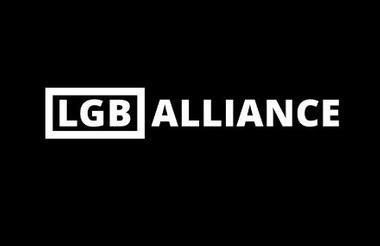This week, the judgment of the First-tier Tribunal in Mermaids v Charity Commission and LGB Alliance was published.
It was one of the very few legal appeals in which one charity has attempted to challenge the status of another – and raised fundamental legal questions.
The decision has attracted considerable attention, which is unlikely to end soon. So, what was decided and why does it matter for the charity sector?
The decision
The Tribunal considered two main issues:
1. Whether the charity bringing the appeal, Mermaids, has “standing” to appeal the decision of the Charity Commission to register the LGB Alliance as a charity.
2. If so, whether the LGB Alliance is a charity as defined by the Charities Act 2011. Mermaids had argued that the purposes of LGB Alliance should be recognised to include aims that are not stated in the objects clause of the charity and do not deliver public benefit.
Issue 1 – standing
The tribunal dismissed the appeal. It concluded that Mermaids did not have the necessary standing – the legal right as a legal person “affected by” the Commission’s decision – to challenge the regulator’s decision.
The ruling is based on the interpretation of the word “affected” in the Act taking into account how it was interpreted previously in the case of Nicholson v AG and the particular facts of this case.
As the tribunal put it: “The focus of this decision is upon a small part of the Charities Act 2011 and what it means, applied in the circumstances of this case.”
This narrow focus has led some of those involved – including the Good Law Project, which fundraised for and has been closely involved with the case – to describe the issue as a “technicality”.
That is not right. This is an important issue for the sector. It would not benefit the sector to have an environment in which it is common for charities to challenge the registration of charities which operate in the same realm and have opposing views on particular issues.
There is an important balance to be struck in ensuring that the decisions of a regulator can be challenged effectively without opening the floodgates to too many such challenges.
The judgment reviews in detail the principles applied in deciding whether a person has standing at paragraph 34. In the context of the wider public attention to this issue, it is worth noting subsection f:
“It is insufficient that a person disagrees with the decision emotionally, politically or intellectually and as a result is affected emotionally and/or socially, however sincere their concerns.”
Issue 2 – public benefit and charitable status
The tribunal did not make a decision on the second issue. It had previously directed that the two issues would be heard together to avoid the need for a re-hearing of the second issue at a later stage. At paragraph 15 of the judgment, the tribunal explains why this is. The two members of the tribunal considering the appeal did not have a unanimous view on the issue of whether the LGB Alliance should qualify as a charity.
“The two members of the panel hearing this appeal have been unable to reach agreement on whether, if Mermaids does have standing, LGBA is a charity within the meaning of the 2011 Act.”
The judgment does not give any reasons why the judges were unable to reach agreement.
It has been suggested that this casts doubt on the charitable status of the LGB Alliance. But in response to that suggestion, the barrister Barbara Rich has said: “This is no more than an explanation of why the tribunal made the ruling it did, and evidence that Mermaids’ arguments were persuasively put, up to a point. It does not have the status of a published dissenting opinion in a court with more than one judge.”
Implications for the sector
The decision that Mermaids did not have standing is seen by many as an unsurprising and welcome decision which will help limit the uncertainty that could otherwise result.
It is already clear that the decision will be subject to extensive analysis and debate. It will be interesting to see how far such debate escapes the trap of polarised thinking to remain focused on the decision rather than the noise surrounding it.
The judgment includes important comments about the inevitability of disagreement in relation to complex and important issues – and the importance of “free communication of information, opinions and arguments about the laws which a state should enact and the policies its government at all levels should pursue”. The diversity of the charity sector is to be celebrated.
The decision and the circumstances leading to it also illustrate once again how complex and difficult the task of the Charity Commission can be. There are many contexts in which it will struggle to emerge without one or more of the parties to a decision it makes “profoundly disagree[ing] with the Commission’s decision emotionally, politically and intellectually”.
Related articles










